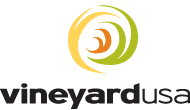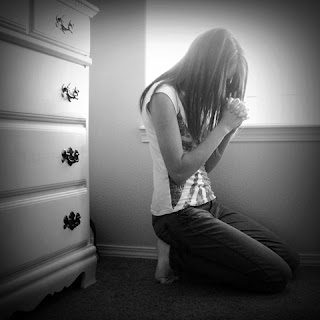Vineyard Spotlight: Emily Fitchpatrick – Part 2
 Today, we continue with our ‘Vineyard Spotlight‘ series, part 2 of our interview with Emily Fitchpatrick (If you missed part 1, check it out here). Emily is founder of On Eagles Wings Ministries and director of Hope House, a U.S. safehome for victims of child sex trafficking and exploitation. Emily gives some good advice for churches and helps us understand the difficult issues involved with this kind of ministry:
Today, we continue with our ‘Vineyard Spotlight‘ series, part 2 of our interview with Emily Fitchpatrick (If you missed part 1, check it out here). Emily is founder of On Eagles Wings Ministries and director of Hope House, a U.S. safehome for victims of child sex trafficking and exploitation. Emily gives some good advice for churches and helps us understand the difficult issues involved with this kind of ministry:VAST: What kinds of initial concerns/ obstacles did you need to address/overcome in beginning this ministry?
Emily: After coming back from Thailand I knew that we were to open a home here in the states for U.S. victims. As I begin to tell people that, they thought I was crazy. For one…people did not think there was such a thing as domestic victims and they also did now know why we needed a home for something that did not exist (in their minds). Thankfully, there has been much more awareness surrounding this issue lately. When we first started pursuing opening a home for domestic minors, the only people we could find who understood this issue was Shared Hope International – who is now one of our partners. From the beginning, Shared Hope was so supportive. They helped us as we started the process of opening our first shelter.
VAST: In terms of connecting with the Vineyard church, what was their initial response?
Emily: In general, what kinds of particular challenges have you found with sharing about your work with churches? Conversely, what has gone particularly well? I have always found the Vineyard churches to be VERY supportive. I speak all over the East Coast and I find that some churches are more supportive than others. Some seem to shy away from this topic. I believe this is because if they talk about domestic trafficking, then they would have to address the issue of pornography in the church. To be honest, many of our girls have had to serve clients who were respected men “in the church”.Porn is a problem we MUST discuss from the pulpit. Porn opens the gate to men wanting to take it a step further and this is where the demand for girls happens.
VAST: What have you found to be the most effective way to engage churches with both the topic of human trafficking and the work of Eagles Wings?
Emily: It seems that the most effective way has been to start with the women’s ministry group. We have not found much success in engaging the church by going directly to the Senior Pastor. I am not sure if it’s because they are so busy or if it’s because it’s such a sensitive topic? Our experience has been that by reaching out to the women first, this helps us to get a foot in the door.
VAST: How do you balance the tension between sharing honestly about the trauma survivors endure and protecting their dignity?
Emily: We do not share anything that would come back to hurt one of our girls. We do share stories in general when we are speaking about the issue, but we never use names or locations. Our girls come to the Hope Houses from all over the U.S. and our number one priority is their safety.
VAST: What’s your perspective on the relationship between the need to address human trafficking domestically and internationally?
Emily: I personally feel that “the church” views missions as something that can only take place outside of the U.S. I feel that everyone on our staff is doing missions work right here. I am passionate about helping our girls being exploited right here in our own backyards.
VAST: Can you provide a bit of info on work you did to assess the need for a safehome in your area?
Emily: We do not accept local girls into our program because of safety risks. We have worked with local girls (girls from North Carolina) but do not bring them to the house. In trying to determine who we would serve in our first safehome (domestic victims vs. international victims), we realized that we had to pick one thing and do it well. You are looking at two different demographics, two different types of clients. For us, we prayed and felt God was giving us such a burden for domestic minors. We started with that…U.S. girls under 18. We now have a home for girls over 18 as well. But, we feel called to work with domestic victims.
VAST: Let’s talk about the importance of networking. What kinds of relationships to you have with local anti-trafficking organizations?
Emily: Networking is key. We rely heavily on our community for support. We take our girls off property to counseling, doctors appointments, group outings, recreation, etc. We work closely with other anti-trafficking organizations to receive referrals and to discuss situations, best practices, and share ideas. We value our relationships with other like-minded organizations. We also tithe 10% of our monthly donations to organizations, like us, serving victims.
VAST: If you could say one thing to the entire Vineyard movement with regards to human trafficking, what would it be?
Emily: Don’t be afraid to jump in to this issue. There are so many girls who need positive role models. There are so many girls who need advocates – people to go to bat for them, walk alongside of them, be there for them in a non-judgmental, loving way. I have seen such success in our program but it’s mostly because of the trusting relationships our girls are able to form with our volunteers (other Christ-followers). I would encourage anyone in the Vineyard church to pray and ask God what He may have them to do. Besides helping victims directly, there are other ways people can get involved in this fight. Prevention and awareness are two other much needed ways people can plug into the anti-trafficking movement.



